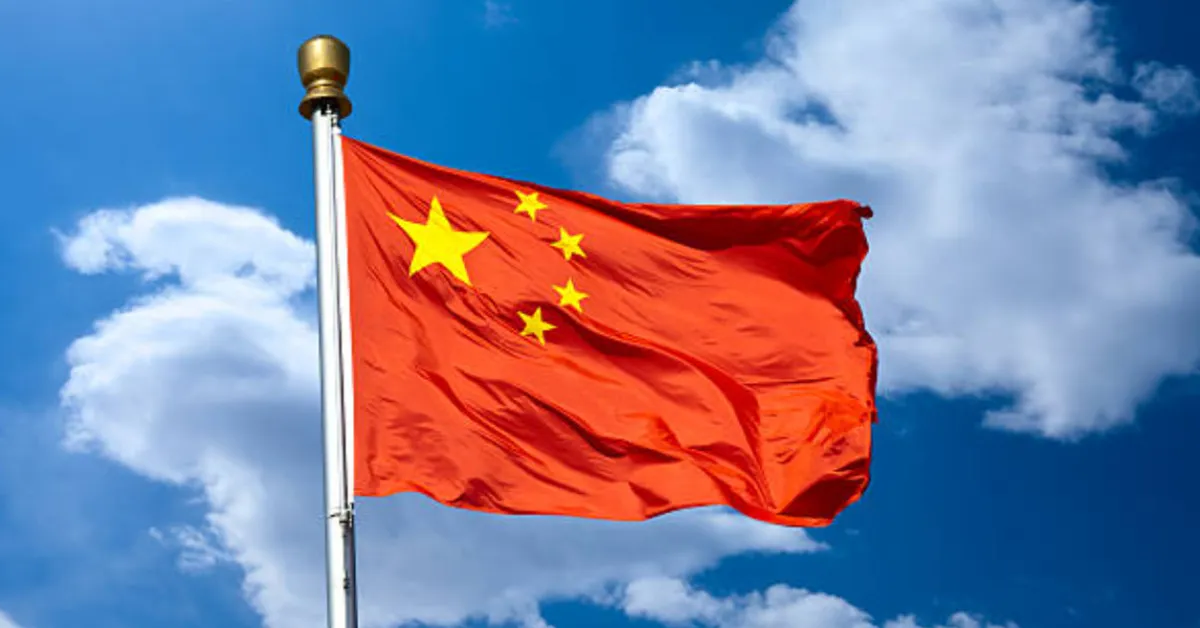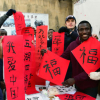US Economic Popularity Declines in Kenya as China Gains Favour

A recent Pew Research Center survey reveals a notable shift in Kenya’s economic preferences, with China equalling the United States in favourability for the first time.
According to the survey conducted between January and April 2025, approximately half of Kenyan respondents view Beijing as their preferred economic partner, marking a ten-point increase since 2019. This mirrors the proportion that favours Washington, indicating China's growing economic influence in the region and a broader realignment of geopolitical loyalties among middle-income countries.
The Pew study, encompassing over 31,000 respondents across 24 countries, illustrates a nuanced perspective on evolving global perceptions.
While high-income nations largely continue to prioritise economic ties with the US, middle-income countries, such as Kenya, increasingly embrace China's development model and investment outreach. This evolution reflects a growing appreciation for China's infrastructure-focused diplomacy, primarily through the Belt and Road Initiative (BRI), which has become synonymous with major public works projects across Africa.
Since its launch in 2013, the BRI has channelled billions into Kenya via project-based loans, leaving an unmistakable mark on the nation's infrastructure landscape. These investments range from the Standard Gauge Railway connecting Mombasa to Suswa to the Nairobi Expressway, the Thika Superhighway, and extensive bypass networks around the capital. These projects, largely financed by Chinese lenders, have solidified China’s position as Kenya’s largest bilateral creditor, with an outstanding debt of over $5 billion as of March.
Investment sentiment among Kenyans remains overwhelmingly positive, with 71 per cent of Kenyan adults viewing Chinese investment as beneficial, up from 60 per cent in 2019. This contrasts with other surveyed countries, such as Nigeria, where enthusiasm has waned. Many Kenyans view Chinese-financed infrastructure as more than just an economic stimulus; it is tangible proof of development. The narrative of job creation and improved connectivity resonates deeply in a country where public investment remains a core national priority.
The upswing in Kenya's economic ties with China is not without its drawbacks. Despite imports from China valued at over Sh576 billion last year, Kenya's exports to China totalled a mere Sh26 billion. Composed mostly of raw materials such as titanium ore, copper waste, and tea, this trade imbalance underscores Kenya's position within the global supply chain as a provider of unprocessed goods to more industrialised economies.
In contrast, Kenya’s trade relationship with the United States is relatively more balanced, with Sh155 billion in imports matched by Sh89 billion in exports. However, this parity has not shielded Washington from losing influence. Political transitions in both nations have disrupted long-standing trade negotiations, including efforts to secure a post-Agoa bilateral trade agreement. The envisioned Free Trade Agreement with Kenya, initiated under President Donald Trump’s administration, was shelved under President Joe Biden’s tenure, replaced by the more limited Strategic Trade and Investment Partnership (STIP).
That agreement remains incomplete as of early 2025. Recent resumption of dialogue under the returning Trump administration has reignited diplomatic momentum. US Trade Representative Jamieson Greer, in congressional testimony, emphasised renewed commitment to advancing trade talks with Nairobi.
"It was a fruitful conversation and I look forward to speaking with him again," he said, referring to his meeting with Kenya’s Trade Minister.
However, Washington’s tariff policy shift complicates matters, particularly as the Biden administration is criticised for delay and indecision. Kenya’s deepening ties with China have sparked unease among some American legislators. President William Ruto’s visit to Beijing in April, during which he characterised the Sino-Kenyan relationship as a cornerstone of a “new world order,” triggered rebuke in Washington.
"That is not just alignment to China; it's allegiance," declared Republican Senator Jim Risch, warning that overt embrace of Beijing could necessitate a reassessment of strategic relations with Kenya and similar partners.
The implications of this recalibration extend beyond trade statistics. Kenya’s strategic importance in East Africa—spanning economic hubs, security partnerships, and peacekeeping roles—makes its foreign alliances particularly consequential. Historically regarded as a key US ally outside NATO, Kenya’s posture towards China may influence broader patterns across Africa, especially in the context of development financing, cyber cooperation, and political alignment.
While Washington maintains a robust presence, especially in security and governance initiatives, its delayed economic engagement threatens to diminish its influence just as China sharpens its appeal through direct infrastructure investment and swift delivery of strategic projects.














Add new comment